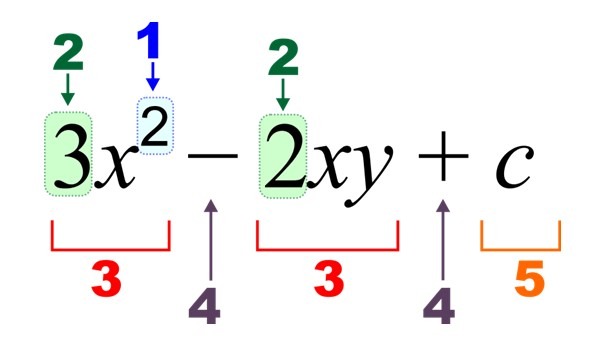Working with algebraic expressions is an essential skill for kids as it applies throughout their academic years. Most kids get familiar with the concept of algebra by middle schools that gets much more complicated with each passing year. Understanding the basics of algebra is foundational for higher grades. Forming the core foundation in algebra helps kids understand other topics like trigonometry, calculus, geometry, etc. When students transition from arithmetic to algebra’s symbolic language, it helps promote their abstract reasoning skills.
Algebra is an important mathematics topic that covers basic operations and symbols to represent numbers in formulas and equations. It is one of the most basic and ancient branches of mathematics that originated in the Arab. The word Algebra means the science of restoring and balancing. Learning algebra enables us to understand many real-life phenomena around us. It is a symbolic representation of numbers and how they work together to provide structure to equations. It forms the basis for advanced study in many fields like science, medicine, engineering, etc. It allows mathematicians to write formulas and solve maths problems more efficiently.
It might seem a little daunting for kids to adjust from concrete arithmetic to algebraic symbols & expressions. But once they get a hold of it, algebra is no longer a difficult subject for them. The first and foremost step in understanding algebra is to learn the basics and memorize all the algebraic formulas. The use of learning materials like basic math solvers, including arithmetic sequence solvers can also boost student’s understanding as they can verify their results with a step by step description.
Here are Few Easy Steps to Learn Algebra:
Memorize Formulas
Memorizing formulas will help while converting a word problem into algebraic expressions. Depending on the grades, a child needs to learn how to use some formulas to solve equations. When a child remembers all the formulas, it becomes convenient to apply them with ease.
Learn Basics
Elementary school math is essential to learn algebra. Kids need to clear all basics before they can start to learn algebra. They should have a sound knowledge of fundamental operations of addition, subtraction, multiplication, and division. Lack of understanding of these necessary skills may result in facing difficulties while learning algebra.
Remember PEMDAS
One of the trickiest parts of solving an algebraic equation is knowing where to start from—remembering the order of operations helps understand where to begin while solving an algebraic problem. A handy tool to learn this order of operations is called PEMDAS. The order of operations is important as it can affect the result a lot. PEMDAS is an acronym of the order of operations, i.e., Parentheses, Exponents, Multiplication, Division, Addition, and Subtraction.
Don’t Let the Variables Scare You
While solving any algebraic problem, kids usually feel fearful about variables. Guide them to consider these variables as numbers whose value is unknown. Help them rearrange the equations step-by-step by placing all the variables carefully at one side to find their values. By doing this, they will also understand the steps of solving an algebraic equation.
Learn From Your Mistakes
Encourage kids never to be afraid of making mistakes by considering them as a part of their learning process. When kids recognize and learn from their mistakes, it becomes easier for them to solve challenging problems. Practicing after making mistakes will also enhance their problem-solving abilities.
Conclusion
Children usually depend on memorizing various mathematical concepts despite understanding them. This type of learning leads to poor subject knowledge and a lack of interest in the topic. When children learn math through reasoning and logic, they gain conceptual fluency. Cuemath helps kids to understand math logically by strengthening their reasoning skills. Sound conceptual knowledge of each topic allows children to develop connections between various math topics, forming a strong math foundation.

